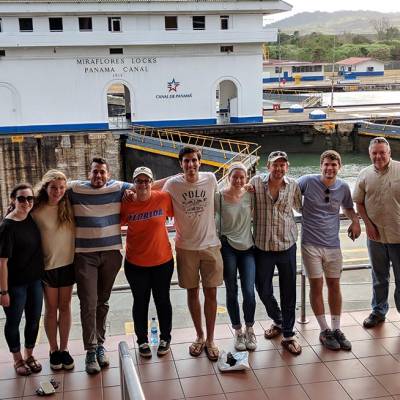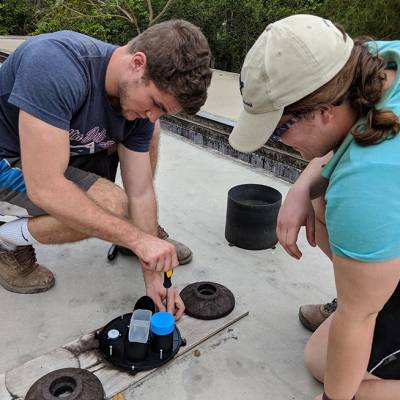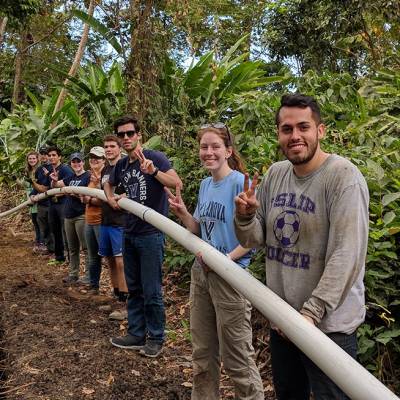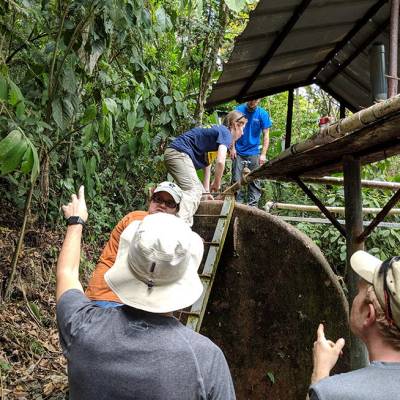Engineering Students Continue Decades-Long Tradition of Service in Panama
by Daniel Fetsko ’19 CE
During spring break in March, nine Villanova University students from the College of Engineering traveled to the Cheypo region of Panama, continuing a 27-year partnership with Father Wally Kasuboski. Accompanied by three employees from Pennsylvania-based Aqua America, the group was composed of seven undergraduate students (myself included) and two graduate students in the sustainable engineering program. Our mission was to work with Father Wally on the maintenance and expansion of the local water system.
Father Wally arrived in Panama 30 years ago in a sparsely populated jungle region about two hours from Panama City, the capital. There, he found a small town called Wacúco and built his mission. “When I first got to Wacúco, it was all jungle and there were only a couple hundred people in the surrounding area because there was no water. The people didn’t come until after I brought the water,” he explains. Today, there are three water systems for the towns in the area—Wacúco, Tortí and Cañasas —serving a total of 17,000 people. While only the Wacúco pipeline is fully under his direction today, Father Wally orchestrated the construction of each system, as well as the roads that now carve through the mountainside. In past years, Villanova’s contributions have varied, with projects including the design and construction of multiple churches in the Tortí area, as well as the work with the water systems.
Over the course of our week in March, the main project accomplished by the Villanova team was an expansion of the Wacúco system. We added roughly a mile of new 3" diameter PVC pipe from the source tank to allow for increased flow and distribution throughout the system. Additionally, our group installed rain gauges in order to track precipitation levels during both the rainy and dry seasons with the goal of establishing a baseline expectation for how much additional water is needed at various times of the year. Also, through testing of chlorine levels and water pressure at various outlets along the line, we were able to determine how well both the chlorination and distribution systems are functioning. Lastly, and most importantly, with the installation of a flow meter at the tank, our team was able to see how much water is still flowing through the system in the middle of the night, when there should be none. With this, we were able to show Father Wally how much water is consistently leaking from the system and begin the process of pinpointing where those leaks occur.
Throughout our time working on the pipeline, Father Wally and his team of local workers continually stressed the importance of the water system. Even now that the system is in place and fully functional, turning off the main line for maintenance for just an hour or two has a huge impact on the people that rely on the system as their only source of water.
This was without a doubt one of the most impactful experiences that we Villanova students have ever had. It was incredible to see the concepts that we learn in class applied to a philanthropic scenario where we were able to use what we know to help others in a way that most people never get to experience.
The Villanova Engineering Service Learning team looks forward to continuing its partnership with Father Wally to bring stability to the region by the addition of more schools, churches and pipelines.




